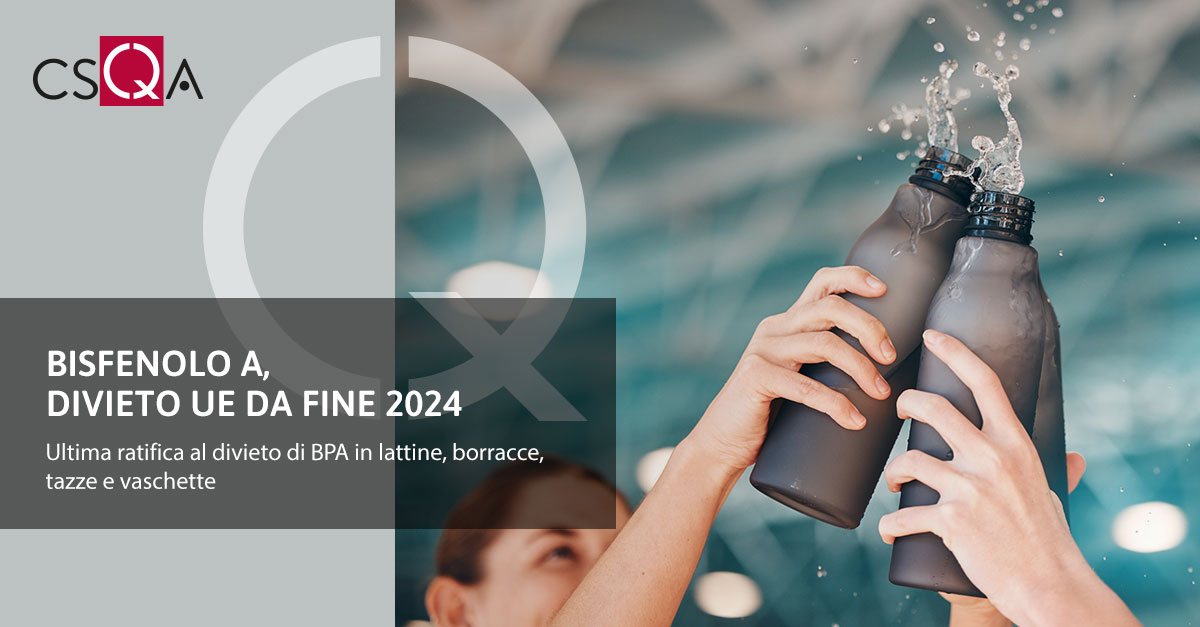 The latest green light to ban Bisphenol A in food containers came on 12 June 2024 from member states who ratified the European Commission's proposal in February.
The latest green light to ban Bisphenol A in food containers came on 12 June 2024 from member states who ratified the European Commission's proposal in February.In concrete terms, the ban on the use of BpA , a substance used in the linings of cans, water bottles, cups and trays but considered by EFSA to be potentially harmful to the immune system, will come into effect at the end of 2024 but companies will have a transition period - from 18 to 36 months depending on the type of packaging - to comply.
The BpA ban will apply to food contact materials , such as the coating used on metal cans, and to consumer items such as kitchen utensils, tableware, plastic drink bottles and water coolers.
The decision is based on scientific advice from the European Food Safety Authority ( EFSA ), which concluded in April 2023 that current levels of exposure to Bisphenol A had "potential harmful effects on the immune system" .
According to EFSA, the BpA used in containers could migrate in small quantities towards the foods and drinks contained and represent a problem for the health of consumers.
For this reason it set a tolerable daily intake (Tdi) – the amount of a substance in food considered safe for people – at 0.2 nanograms per kilogram (ng/kg) of body weight , which is 20,000 times lower than the previous Tdi of 4 micrograms per kilo of body weight recommended in its previous opinion (2015).
Since 2011 the EU has banned its use in polycarbonate baby bottles, in 2016 it banned its use in thermal receipt paper and in 2018 it introduced further restrictions on its use in baby and children's bottles and containers, paints and coverings.
Limited exceptions will apply where safe alternatives are not available and transition periods where they do not pose a risk to consumers. This will allow the industry to adapt and avoid potential disruptions to the food chain. (Source: https://www.sivempveneto.it/ )